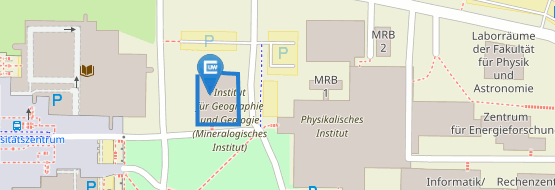Anna Sophie Frieser, M.Sc.
Chair of Geography and Regional Science
Tel.: +49 931 31-86938
E-Mail: anna.frieser@uni-wuerzburg.de
Institute of Geography and Geology
Am Hubland
97074 Würzburg
Campus Southern Hubland
Geography buildung
Room 322b
- Management of protected areas
- Tourism research
- Regional economics
- Sustainable regional development
- Economy of protected areas
Analysis of the regional economic effects of nature tourism in the nature park Lüneburger Heide
- Funding body: Alfred Toepfer Akademie für Naturschutz, Schneverdingen/Verein Naturparkregion Lüneburger Heide e.V., Amelinghausen
- Duration: 03/2022 – 09/2024
- Budget: 46.900 EUR
- Leadership: Univ.-Prof. Dr. Hubert Job
- Contact persons: Anna Frieser M.Sc., Dr. Manuel Woltering
The nature park Lüneburger Heide as the first nature park in Germany is particularly characterized by the interaction of natural and human influences. Formed by glacial processes and the agricultural use of the people, the characteristic heath landscape has developed there, which has had a special importance for the population in local recreation for a long time. So that the cultural landscape of the Lüneburg Heath can still be experienced today and can function as a habitat for many rare plant and animal species, efforts were already made at the beginning of the 20th century to protect it. The aim of the research is to quantify the economic significance of nature tourism in the nature park Lüneburger Heide.
Regional economic effects of sustainable tourism in nature parks and 'total economic valuation' of the National Natural Landscapes
- Funding body: UFOPLAN – BMU/Bundesamt für Naturschutz, Bonn
- Duration: 07/2020 – 12/2024
- Budget: 508.000 EUR
- Leadership: Univ.-Prof. Dr. Hubert Job
- Contact persons: Sarah Bittlingmaier, M.Sc., Anna Frieser, M.Sc., Dr. Lisa Majewski, Dr. Manuel Woltering
In recent years, almost all German national parks and biosphere reserves have now been analyzed with regard to their regional economic effects on the surrounding regions. The resulting data, such as the number of visitors per year or the proportion of guests coming because of the status as a protected area, are part of the Integrative Monitoring Program of the Federal Government and the Federal/State Working Group on Nature Conservation, Landscape Management and Recreation (LANA). For the category of nature parks, such an assessment of their importance for the tourism economy in Germany is still pending. Due to the large number of nature parks with more than 100 representatives, however, it is not possible to carry out a comprehensive case-by-case analysis. Instead, a nationwide statement is made on the basis of detailed knowledge of selected case studies by means of extrapolation. Furthermore, it is the aim of the project to carry out a 'total economic valuation' for the first time on the basis of the results on the economic importance of tourism as well as further analyses for all three categories of National Natural Landscapes.
since 01/2022
Research assistant at the Chair of Geography and Regional Research at the Julius-Maximilians-University of Würzburg
11/2021
Master of Science, Applied Human Geography, Julius-Maximilians-Universität Würzburg Master thesis: "State oft he art of socio-economic nature park research".
06/2018
Bachelor of Science, Geography, University of Augsburg Bachelor thesis: "Possibilities and limits of the implementation of a city management in Füssen".
Practical activities
04/2019 – 12/2019 & 07/2021 – 12/2021
Student Assistant, Chair of Geography and Regional Research, Julius-Maximilians-University Würzburg
10/2020 – 02/2021
Training, Design Thinking School at the Hasso Plattner Institute
01/2020 – 09/2020
Internship, Student Assistant, Mercedes Benz AG
07/2018 – 09/2018
Internship, Markt und Standort Beratungsgesellschaft mbH
08/2017 – 04/2018
Student Assistant, Chair of Human Geography, University of Augsburg
08/2015 – 09/2015
Internship, Wirtschaftsrathaus of the City of Nuremberg
Frieser, A., Bittlingmaier, S., Piana, T., Majewski, L. (2023): „Ökonomische Bewertung des nachhaltigen Tourismus in deutschen Naturparken“. In: Kühne, O., Sedelmeier, T., Jenal, C., Freytag, T. (Hrsg.): Landschaft und Tourismus. RaumFragen: Stadt – Region – Landschaft. Wiesbaden.
Frieser, A. und Hilpert, M. (2021): Touristisch geprägte Klein- und Mittelstädte. Zentrale Handlungsfelder für Ortszentren mit großer Besucherzahl. In: Standort 45 (3): 187-193.


